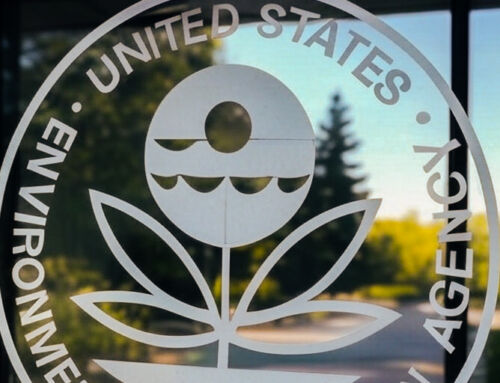View by Topic
Recent Articles
-
NYC Building Electrification Ruling is Interesting But Not a Game ChangerSaturday, March 29th, 2025
-
Greenpeace Ordered to Pay $667M in Blow to ActivismSaturday, March 22nd, 2025
-
The Most Consequential Day of Environmental Deregulation in American HistorySaturday, March 15th, 2025
-
States Challenge Validity of New York’s Climate Change Superfund ActSaturday, March 8th, 2025
-
House Votes to Protect the Hot Water Heater in Your HouseSaturday, March 1st, 2025
View by Month/Year
“Green Building Law Update” Headlines
Recent Articles & News from
Stuart Kaplow’s blog
at GreenBuildingLawUpdate.com
- NYC Building Electrification Ruling is Interesting But Not a Game Changer March 30, 2025
- Greenpeace Ordered to Pay $667M in Legal Blow to Environmental Activism March 23, 2025
- The Most Consequential Day of Environmental Deregulation in American History March 16, 2025
- States Challenge Validity of New York’s Climate Change Superfund Act March 9, 2025
Subscribe to the Green Building Law Update!
Stuart Kaplow brings his expertise and extensive experience to the table with his unique digital publication, "Green Building Law Update". Subscribers receive regular updates to keep them informed about important issues surrounding Environmental Law, Green Building & Real Estate Law, as well as the emerging demand for Environmental Social Governance (ESG).
Get fresh content through the lense of Stuart Kaplow's cutting-edge expertise, innovative commentary and insider perspective. Don't miss another issue! Subscribe below.

Biden Veto of Repudiation of ESG Worker Savings Rule a Positive for ESG
Last week Congress voted to approve House Joint Resolution 30 seeking to nullify the Department of Labor “ESG Rule” concerning fiduciary duties with respect to employee benefit plans.
Under that final rule, issued on December 1, 2022, retirement plan fiduciaries may expressly consider environmental, social, and governance (ESG) factors, including climate change, when making investment decisions and when exercising shareholder rights, including voting on shareholder resolutions and board nominations.
Just before the votes utilizing the Congressional Review Act, which allows Congress to repeal a rule issued by a federal agency within 60 days of its going into effect, the Administration issued a statement that concluded, “if the President were presented with H.J. Res. 30, he would veto it.”
Despite the political rhetoric on both sides, we suggest that the veto will have no impact on the emergent and already huge, powerful, and overwhelming force that is ESG. It certainly was not the pyrrhic victory claimed by both sides. Who could have anticipated that something as arcane as utilizing environmental, social, and governance factors to measure how an organization is managing risks and opportunities, used by investors as far back as 2005 for asset allocation, would today be hijacked by progressives and a rallying cry for conservatives? (Does anyone really think it is wrong for an investor to want data available on the gender makeup and diversity of a corporate board if that is an issue they think portends long term success of the business before they invest in that company?)
Political divisiveness across America reached a crescendo last week over this Department of Labor rule that is fuel on the fire for ESG zealots on both sides because it involves people’s retirement accounts – something a lot of people care about and accordingly which makes it “bad” facts when piled on broader matters of ESG.
We blogged about the Department of Labor rule at the center of this controversy last November in, Department of Labor Proposes to Remove Barriers to Considering ESG in Plan Management. But a bit of history is needed to appreciate that this is just Washington DC politics. By way of background, on Nov. 13, 2020, the Trump Administration published a final rule titled “Financial Factors in Selecting Plan Investments,” which generally required retirement plan fiduciaries to select investments and investment courses of action based solely on the materiality of “pecuniary” [financial] factors and not ESG factors or climate change. That rule, along with many others was repealed in part and otherwise publicly not being enforced by the Biden Administration by Executive Order.
That Executive branch action was all followed by this rule, issued by the Biden Administration on December 1, 2022, providing the near polar opposite (.. from the Trump rule) that retirement plan fiduciaries may now consider ESG factors including climate change when making investment decisions.
All of this is without any change in federal ERISA laws by Congress, which govern retirement plans that collectively invest $12 Trillion. All of this resulted in dramatic changes in policy by unilateral Executive branch action and other Presential fiat without the participation of Congress.
It is suggested neither Administration’s rule was good government. Employees with retirement plans have for more than 30 years relied on the mandate enacted by Congress and signed into law by the President “that when making decisions on investments and investment courses of action, plan fiduciaries must be focused solely on the plan’s financial returns, and the interests of plan participants and beneficiaries in their benefits must be paramount.” And that rests on top of “materiality.” Since the 1940s, the SEC has defined material information in the context of financial statements as “those matters as to which an average prudent investor ought reasonably to be informed before purchasing the security registered.” That generally means monetary matters, but it can also include a nonmonetary ESG factor or even climate change, but no new government rule is necessary or proper to accomplish that.
This ping pong of standards for retirement account investing that was at play here, with the ball bouncing from red side of the table to blue side, should not be seen as a rebuke of the ESG juggernaut or the like. Likewise, the moves by several states to halt state retirement fund assets from being invested using social factors including ESG (.. states are preempted by ERISA from having their laws apply to private retirement plans), has broad support because these teacher and government worker retirement accounts that cover more than 150 million Americans are a third rail politically and ESG suffers in perception when it is linked to a subject considered too controversial to even mention.
But rather, this instability that is modern American politics has to be viewed in the context of the massive inexorable force that is ESG, seeming to crush everything in its way that we have known about the role of a corporation in society. The exponential growth in ESG in the last 3 years happened in a period without any subject specific ESG regulation, simply before ESG laws could be enacted. And no new laws are needed now. The marketplace will continue to control ESG (.. of course, within the guide rails of the longstanding and existing framework that governs companies). We believe in earnest no new ESG specific regulation is necessary or desirable. If it takes some new law to justify the existence of ESG, then ESG factors should not be financially relevant and taken into account in considering the risk and opportunity in investing in a company; but such is not the case.
This Congressional action will apparently be unsuccessful (i.e., it is going to be vetoed), but it is not the only challenge the rule faces. There are at least two lawsuits seeking to block the Labor Department from implementing the rule, including Utah v. Walsh filed by attorneys general from 25 states.
The better question for each business is simply, is the world better off because your company is in it? The marketplace will be the judge.
Winners and losers will be selected by the marketplace and not by the Executive branch (.. whoever is President). We regularly articulate in this blog that solutions will come from the increasing number of businesses that believe profit should come not from creating the world’s problems, but from solving them.









